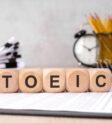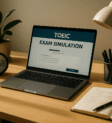
TOEIC Score Requirements in France: What Schools and Companies Really Expect in 2025
Understanding TOEIC score requirements can determine whether you gain admission to your dream business school, secure that international position, or validate your engineering degree. This comprehensive guide reveals the exact scores demanded by France’s top institutions and leading companies, explains why these thresholds matter, and provides actionable strategies for achieving the scores that open doors to your professional future.
#TOEICScores2025 #FranceEducation #BusinessSchools #CareerSuccess #EnglishProficiency
Understanding TOEIC Scoring and CEFR Levels
The TOEIC Listening and Reading test produces scores ranging from 10 to 990 points, divided equally between the two sections with each contributing 5 to 495 points. Unlike pass/fail examinations, TOEIC provides a continuous measurement scale, meaning every point matters when institutions and employers establish minimum thresholds. This scoring system directly correlates to the Common European Framework of Reference for Languages, the international standard for describing language proficiency across Europe.
Understanding these correlations proves essential because French schools and companies increasingly reference CEFR levels rather than raw TOEIC scores. When a job posting requires “fluent English at B2 level,” the recruiter expects candidates to demonstrate at least 785 TOEIC points. When HEC demands C1 proficiency, applicants need approximately 945 points to meet this threshold. This alignment between TOEIC scores and CEFR levels creates a common language for discussing English competency across educational and professional contexts.
| CEFR Level | TOEIC Score Range | Proficiency Description |
|---|---|---|
| A1 (Elementary) | 120-224 | Basic workplace phrases and simple instructions |
| A2 (Pre-Intermediate) | 225-549 | Routine workplace communications in familiar contexts |
| B1 (Intermediate) | 550-784 | Handle most workplace situations with some limitations |
| CEFR Level | TOEIC Score Range | Proficiency Description |
|---|---|---|
| B2 (Upper-Intermediate) | 785-944 | Fluent professional communication with minor limitations |
| C1 (Advanced) | 945-990 | Near-native professional English across all contexts |
| C2 (Proficient) | N/A | TOEIC cannot certify C2; requires Cambridge CPE |
- Each section (Listening and Reading) contributes equally, meaning weaknesses in either area directly impact total scores
- No penalty exists for incorrect answers, making strategic guessing essential for maximizing scores
- Score validity lasts only two years from test date, requiring recent certification for applications
- The average French test-taker scores 690 points, placing them solidly in B1 intermediate territory
- Only the top 10% of French candidates exceed 870 points, highlighting the competitive advantage of high scores
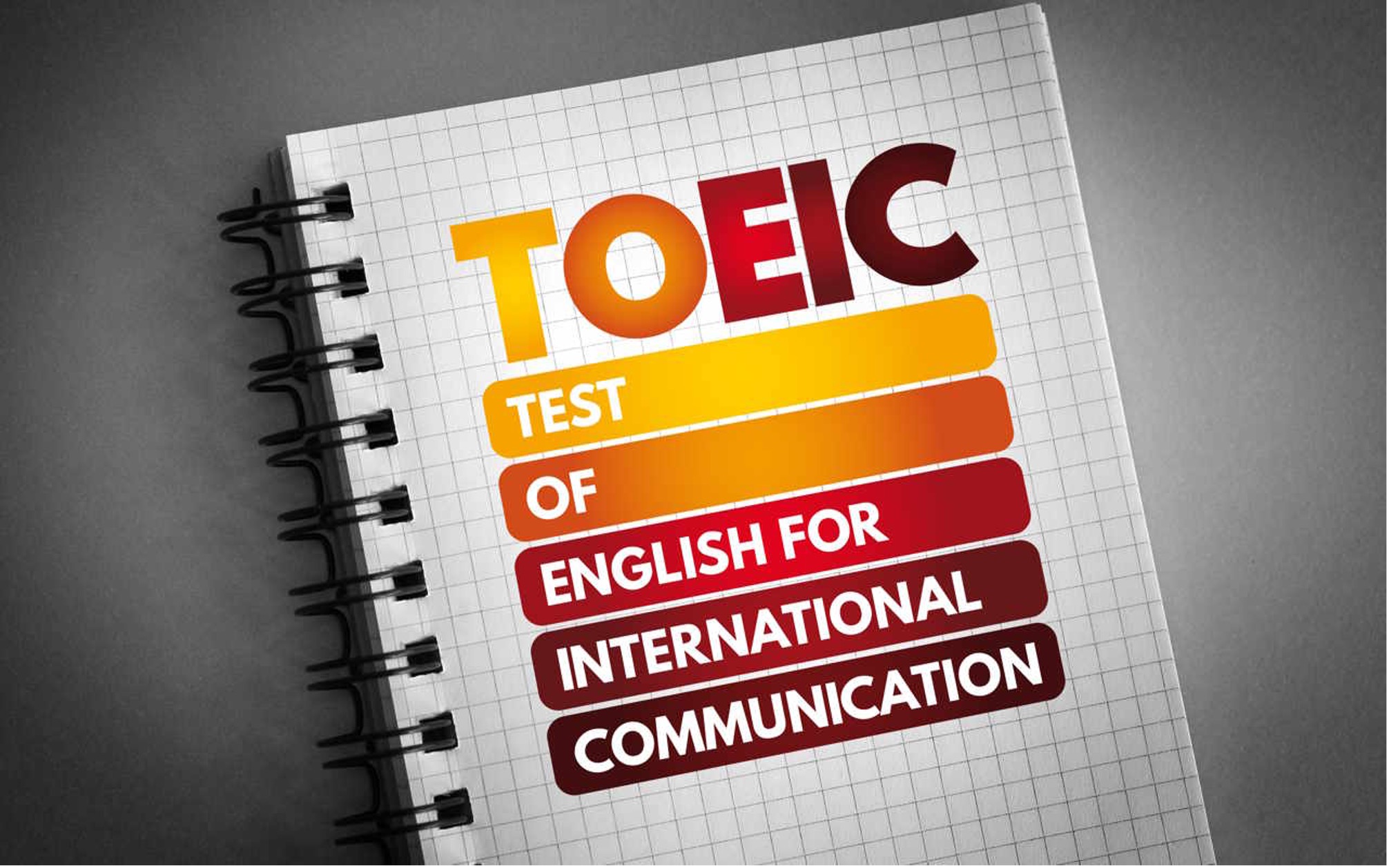
The relationship between TOEIC scores and workplace performance has been extensively researched. Studies demonstrate that candidates scoring above 785 (B2 level) can effectively handle international business communications including conference calls, email correspondence, and presentation delivery. Those achieving 945+ (C1 level) function at near-native proficiency, navigating complex negotiations, technical discussions, and nuanced written communications with minimal difficulty.
Business School TOEIC Requirements: France’s Top 20 Schools
French business schools, particularly those in the prestigious “Grandes Écoles” category, maintain rigorous English language requirements reflecting their international focus and global alumni networks. These requirements serve dual purposes: filtering candidates during admission processes for selective programs and ensuring graduates possess sufficient English proficiency to succeed in international business careers.
Top-Tier Business Schools (Top 3)
The elite triumvirate of HEC Paris, ESSEC Business School, and ESCP Business School set the highest TOEIC standards in France. These institutions recognize that their graduates will compete in global markets where English fluency represents a fundamental requirement rather than a competitive advantage. Consequently, they demand exceptional English proficiency from the moment candidates apply.
| School | Minimum Score | Average Admitted Score |
|---|---|---|
| HEC Paris | 850 (L&R) + 340 (S&W) | 947 points |
| ESSEC Business School | 850 (MiM), 780 (Global BBA) | 935-950 points |
| ESCP Business School | 850 (Master admission) | 951 points |
These minimum scores represent entry thresholds, not competitive targets. HEC Paris receives applications from candidates with an average TOEIC score approaching 950 points, meaning applicants scoring exactly 850 face significant disadvantages. The brutal mathematics of selective admission mean that when 25 annual spots attract hundreds of qualified applicants, every dimension of the application must demonstrate excellence. A TOEIC score below 900 becomes a weakness that stronger areas must compensate for.
High-Tier Business Schools (Ranked 4-10)
Schools positioned just below the top three maintain slightly more accessible TOEIC requirements while still demanding strong English proficiency. These institutions recognize that international exposure and English-language instruction form core components of modern business education.
| School | Official Minimum | Competitive Range |
|---|---|---|
| EDHEC Business School | 815 points | 870-920 points |
| EM Lyon Business School | 850 points | 900-930 points |
| SKEMA Business School | 800 points | 850-900 points |
EM Lyon exemplifies the gap between stated minimums and admission reality. While officially requiring 850 points, the school admits approximately 480 students annually through parallel admission processes, with average TOEIC scores clustering around 930 points. This 80-point difference between minimum and average reveals the competitive pressure pushing candidates toward exceptional rather than merely adequate English proficiency.
Mid-Tier Business Schools (Ranked 11-20)
Schools in this category typically establish TOEIC minimums between 700-800 points, reflecting their student profile diversity and regional versus purely international focus. However, even here, competitive scores often exceed official minimums by significant margins.
The Passerelle competition, which provides admission pathways to ten business schools including Grenoble EM, ESC Clermont, La Rochelle BS, and Montpellier BS, does not establish formal TOEIC minimums. However, English language proficiency still factors significantly into admission decisions, with competitive candidates typically presenting scores above 750 points.
Engineering School Requirements and CTI Standards
French engineering schools follow different TOEIC requirement patterns compared to business schools, driven primarily by the Commission des Titres d’Ingénieur (CTI), the national accreditation body for engineering programs. The CTI establishes that all accredited engineering schools must require students to demonstrate B2-level English proficiency, corresponding to 785 TOEIC points minimum, to validate their engineering diplomas.

The CTI Standard: 785 Points Minimum
This 785-point threshold reflects CTI’s determination that engineering graduates must function effectively in international technical environments. Modern engineering practice inherently involves collaboration across borders, comprehension of English-language technical documentation, and participation in international conferences and projects. The B2 level ensures graduates can engage in these activities without English proficiency becoming a limiting factor.
- All CTI-accredited engineering schools must enforce this minimum for diploma validation
- Students typically have their entire program duration (3-5 years) to achieve the required score
- Many schools offer English courses and preparation resources to help students reach this threshold
- Failure to achieve 785 points prevents diploma validation regardless of technical performance
- International students and native English speakers must also demonstrate official certification
Variations Among Elite Engineering Schools
While 785 represents the regulatory minimum, prestigious engineering schools often establish higher internal requirements reflecting their international ambitions and graduate outcomes. Schools like École Polytechnique, CentraleSupélec, and MINES ParisTech cultivate reputations for producing globally competitive engineers, which necessitates superior English proficiency.
| School Category | Typical Requirement | Rationale |
|---|---|---|
| Elite Schools (Polytechnique, Centrale) | 800-850 points | Extensive international partnerships and research collaboration |
| Specialized Schools (Telecom, ENSTA) | 785-800 points | Technical domains with English-dominated literature |
| Regional Engineering Schools | 785 points (CTI minimum) | Compliance with accreditation standards |
Some engineering schools integrate TOEIC requirements into admission processes for graduate programs (Master’s level) rather than solely using them for diploma validation. These requirements typically range from 750-800 points for admission, with higher thresholds expected by graduation. This approach ensures incoming students possess sufficient English to follow potentially English-taught courses and engage with international research literature from program commencement.
Engineering vs. Business School Philosophy
The philosophical difference between engineering and business school TOEIC requirements reveals distinct pedagogical approaches. Business schools emphasize English as a core competency integrated throughout curricula, viewing language proficiency as inseparable from business acumen. Engineering schools treat English as an essential supporting skill enabling technical work rather than a primary competency itself. This explains why business schools demand higher scores and integrate English more aggressively into admission criteria.
Nevertheless, forward-thinking engineering graduates recognize that exceptional English proficiency provides competitive advantages in international career markets. Students targeting positions at multinational technology companies, research institutions, or international engineering firms increasingly pursue TOEIC scores well above the 785 minimum, often aiming for 850-900 to distinguish themselves in competitive job markets. For detailed guidance on achieving these higher targets, explore comprehensive TOEIC practice strategies.
Corporate TOEIC Requirements by Industry and Position
French corporate TOEIC requirements vary dramatically across industries, company types, and position levels. Analysis of over 150,000 job postings on French employment platforms in 2025 reveals that approximately 13% explicitly mention English proficiency requirements, up from 9% in 2018. This growth reflects accelerating business internationalization even within traditionally domestic-focused French companies.
International Technology Companies
Technology companies, particularly those with global operations or product distribution, establish among the highest corporate TOEIC requirements. These organizations conduct business primarily in English, develop products for international markets, and maintain distributed teams across multiple countries. English proficiency directly impacts daily job performance in these environments.
| Position Type | Typical Requirement | Competitive Range |
|---|---|---|
| Software Engineers | 750-800 points | 820-870 points |
| Product Managers | 850-900 points | 900-950 points |
| Technical Writers | 800-850 points | 870-920 points |
Companies like Rakuten explicitly require 800 TOEIC points for hiring into comprehensive business courses, demonstrating how leading technology firms use TOEIC as a screening mechanism. Microsoft, Google, and other international technology companies operating French offices typically expect similar or higher scores, particularly for positions involving cross-border collaboration or customer-facing responsibilities.
Financial Services and Banking
French financial institutions increasingly demand strong English proficiency reflecting the sector’s international integration. Investment banking, asset management, and international treasury operations require regular communication with global counterparties, comprehension of English-language financial documentation, and participation in international regulatory discussions.

- Entry-level Analysts: 750-800 minimum for international banks in Paris
- Relationship Managers: 820-870 for client-facing roles with international exposure
- Senior Management: 900+ expected for executive positions in multinational financial institutions
- Compliance and Audit: 800-850 for understanding complex regulatory English
Aviation and Hospitality Industries
These sectors maintain perhaps the most direct relationship between English proficiency and safety or service quality. Aviation safety protocols mandate English for international communications, while hospitality excellence requires serving international clientele effectively.
| Aviation Position | Minimum Requirement | Notes |
|---|---|---|
| Pilots (International Routes) | 750-850 points | ICAO English proficiency also required |
| Flight Attendants (Air France) | 720+ points | Customer service and safety communications |
| Ground Operations | 650-750 points | International passenger assistance |
Hospitality positions in luxury hotels and international chains typically require 700-800 TOEIC points for front-desk staff, 650-700 for housekeeping supervisors with international guest interaction, and 850+ for management positions overseeing international operations.
Multinational Corporations and Foreign-Affiliated Companies
Companies headquartered outside France but operating French subsidiaries often establish company-wide English proficiency standards. These organizations conduct internal communications, strategic planning, and performance reporting primarily in English, making proficiency essential regardless of local market focus.
- American companies (e.g., IBM, Procter & Gamble): typically 750-850 minimum for professional positions
- Japanese companies (e.g., Sony, Toyota): 700-800 common, with variations by department
- German companies (e.g., Siemens, BMW): 700-750 typical, though German language sometimes more critical
- Scandinavian companies (e.g., Ericsson, Spotify): 800-850 expected given these cultures’ strong English emphasis
Research from recruitment firms demonstrates tangible benefits of high TOEIC scores in job markets. Candidates scoring 800+ receive 65% more interview invitations from international companies compared to those scoring 650-750. Positions requiring English proficiency offer 15-25% salary premiums on average. These statistics underscore the financial return on investment from achieving competitive TOEIC scores.
Understanding TOEIC test duration and structure helps professionals balance preparation with demanding work schedules, ensuring efficient progress toward required scores without excessive time investment.
Minimum vs. Competitive Scores: Understanding the Reality
Perhaps the most critical distinction French candidates must understand involves the difference between stated minimum TOEIC requirements and competitive reality. Schools and companies publicize minimum thresholds representing the lowest acceptable scores for consideration. However, these minimums rarely reflect scores that actually lead to admission or hiring when positions attract multiple qualified candidates.
The Application Pool Effect
Selective institutions and competitive positions function as auctions where candidates compete against each other rather than fixed standards. When HEC establishes an 850 minimum for its 25 annual Master spots but receives applications from 200+ candidates averaging 935 points, simple mathematics dictates that scoring exactly 850 produces virtually zero admission probability. The minimum becomes largely ceremonial rather than practically meaningful.
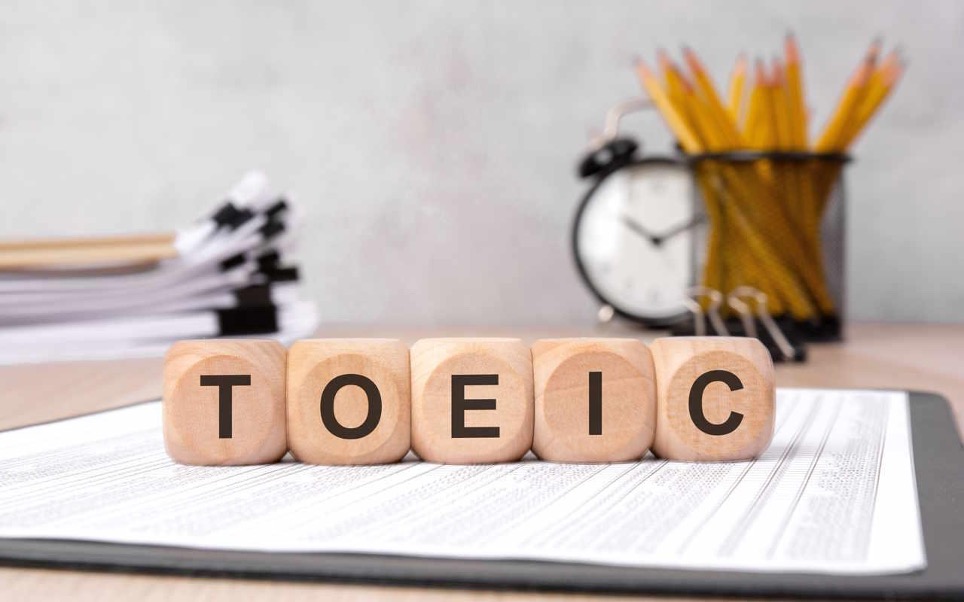
Advantages of Exceeding Minimum Requirements
- Competitive Positioning: Scores 50-100 points above minimums transform English from potential weakness into genuine strength within application or recruitment contexts
- Application Flexibility: High scores open doors to multiple institutions or positions simultaneously, providing choice rather than dependence on single opportunities
- Scholarship Opportunities: Exceptional TOEIC scores often factor into merit-based scholarship decisions at business schools seeking to attract top international talent
- Confidence in Interviews: Strong scores reduce anxiety about English proficiency during oral examinations or recruitment interviews, allowing focus on substantive content
- Post-Admission Benefits: Students entering programs with superior English face easier adjustment to English-taught courses, international exchange programs, and global internship opportunities
Drawbacks of Score Obsession
- Diminishing Returns: Beyond certain thresholds (typically 900-920), additional TOEIC points provide minimal advantage as other application factors become more important
- Opportunity Costs: Excessive time invested pursuing perfect scores might better serve strengthening other application dimensions like work experience or technical skills
- Stress and Burnout: Perfectionist approaches to TOEIC preparation can create counterproductive anxiety that actually harms performance on test day
- Holistic Evaluation Ignorance: Fixating exclusively on TOEIC scores causes some candidates to neglect equally important admission factors like personal statements or recommendation quality
Strategic Score Targeting
Intelligent candidates establish TOEIC targets based on three factors: stated minimums, realistic competitive benchmarks, and personal English proficiency trajectories. A candidate currently scoring 650 who needs admission to a program requiring 850 minimum and averaging 920 among admits faces decisions about time allocation.
Option one involves intensive preparation targeting 920+ to compete at average admitted student levels. This approach maximizes admission probability but requires substantial time investment, possibly 4-6 months of dedicated preparation. Option two targets 870-900, positioning the candidate above minimum but below average, necessitating exceptional strength in other application areas to compensate. Option three acknowledges that reaching competitive levels within available timeline may prove unrealistic, prompting consideration of alternative programs with more achievable English requirements.
Assess Current Position
Take a diagnostic TOEIC practice test establishing accurate baseline. Don’t assume your general English level translates directly to TOEIC scores, as test-specific skills significantly impact results. Many candidates with good conversational English score surprisingly low due to unfamiliarity with test format and business English vocabulary.
Research Competitive Benchmarks
Go beyond stated minimums to understand actual admission or hiring patterns. Speak with current students or employees, review admission statistics if published, or consult with admissions counselors about competitive score ranges. This research prevents wasted effort targeting inadequate scores.
Calculate Required Improvement
Determine the gap between current score and competitive target. Research suggests most candidates can improve 150-200 points with structured 3-month preparation. Larger gaps require proportionally more time or indicate need for alternative strategy consideration.
Develop Realistic Timeline
Based on required improvement and available time before application deadlines or hiring processes, establish whether competitive scores represent achievable targets. If insufficient time exists, consider gap year, alternative institutions, or other strategic adjustments rather than applying with non-competitive scores.
For candidates uncertain about achievable progress, analyzing practice test scores with spreadsheet tracking provides objective evidence of improvement rates and helps project realistic outcome timelines.
Statistical Analysis: What French Candidates Actually Achieve
Understanding TOEIC score distribution among French test-takers provides crucial context for setting realistic goals and understanding competitive positioning. Data from over 250,000 annual French TOEIC attempts reveals clear patterns in achievement levels and the challenges candidates face reaching selective institution requirements.
National Score Distribution
The average French TOEIC score of 690 points places typical candidates solidly in B1 territory, significantly below the B2 (785+) threshold required by most selective programs. This gap between average performance and institutional requirements explains why structured preparation proves essential rather than optional for most candidates.
| Score Range | Percentage of Candidates | CEFR Level |
|---|---|---|
| Below 550 | ~25% | A2-B1 (Pre-intermediate) |
| 550-784 | ~42% | B1 (Intermediate) |
| 785-944 | ~23% | B2 (Upper-intermediate) |
| Score Range | Percentage of Candidates | CEFR Level |
|---|---|---|
| 945-990 | ~10% | C1 (Advanced) |
| 900-944 | Elite minority | High B2/approaching C1 |
These statistics reveal that only one in three French test-takers achieves the 785 minimum required for engineering degree validation, and merely one in ten reaches the 870+ scores competitive for top business schools. This distribution explains why prestigious institutions can maintain high English requirements without struggling to fill enrollment capacity.
Business and Engineering Student Performance
Among students already enrolled in Grandes Écoles (both business and engineering), TOEIC performance skews significantly higher than the national average. Over 30,000 current business and engineering students take TOEIC annually, with approximately 13% scoring above 945 points and 42% achieving 785-940.
- Average Score: 870 points across all Grande École students taking TOEIC
- Top Business Schools: Average scores at HEC, ESSEC, ESCP range from 935-951
- Mid-Tier Schools: Average scores typically fall between 850-900
- Engineering Schools: Average scores cluster around 810-840, slightly below business school averages
This data illustrates selection effects in action. Students admitted to elite institutions already possessed superior English skills before enrollment, often developed through international schooling, extensive travel, or family multilingualism. While these schools provide English instruction and improvement opportunities, the primary driver of high average scores involves selective admission of already-proficient candidates.
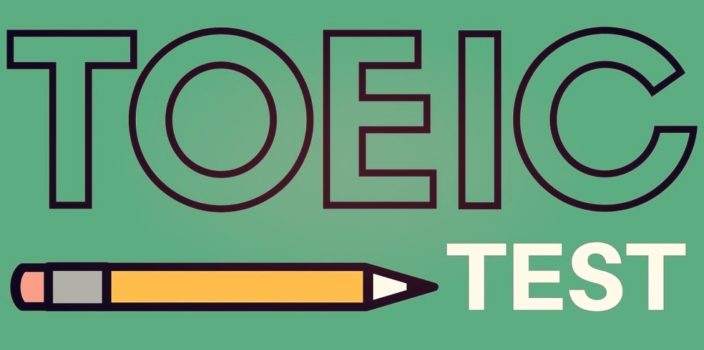
Score Improvement Patterns
Research tracking candidates through structured preparation programs demonstrates that substantial score improvement proves achievable for motivated learners. Students completing 80-120 hours of focused TOEIC preparation over 3-4 months improve an average of 150-180 points. This improvement potential means candidates starting at 650 can realistically target 800-830, moving from inadequate to competitive for many programs.
However, improvement rates vary by starting level. Candidates beginning below 500 often experience dramatic early gains as they master fundamental grammar and vocabulary. Those starting at 750-800 find additional improvement more challenging, as reaching 900+ requires near-native proficiency that develops gradually even with intensive study. Understanding these improvement dynamics helps set realistic targets aligned with current proficiency and available preparation time.
Regional and International TOEIC Score Variations
TOEIC requirements demonstrate fascinating variations across geographic regions and countries, reflecting differences in English education systems, international exposure, and local job market dynamics. Understanding these patterns helps French candidates contextualize their scores within global competitiveness frameworks.
European Context
Within Europe, French TOEIC requirements and performance levels fall somewhere in the middle range. Northern European countries, particularly Netherlands, Denmark, and Sweden, demonstrate significantly higher average English proficiency with typical corporate requirements starting at 800-850 rather than 700-750. This reflects these countries’ education systems’ strong English emphasis and populations’ greater exposure to English-language media.
Southern European countries including Spain, Italy, and Portugal show patterns more similar to France, with average scores in the 650-700 range and selective institution requirements around 750-850. Eastern European countries display wider variation, with some (Poland, Czech Republic) approaching northern European proficiency levels while others lag behind French averages.
Asian Market Dynamics
Asian countries, particularly Japan, South Korea, and Taiwan, represent massive TOEIC markets where the test plays even more central roles in education and employment than in France. Japanese companies frequently use TOEIC for hiring decisions, promotions, and international assignment selections. Requirements typically range from 600-700 for entry-level positions to 800-850 for management roles.
- Japan: Over 2 million annual test-takers, with major corporations like Sony, Toyota, and Honda using TOEIC extensively
- South Korea: Approximately 1.5 million annual attempts, with TOEIC integrated into university admissions and corporate recruitment
- France: 250,000+ annual test-takers, primarily students and young professionals
- Global Total: Over 7 million TOEIC tests administered annually across 160+ countries
North American Perspective
Interestingly, TOEIC sees relatively limited use in North America compared to Europe and Asia. American and Canadian institutions more commonly require TOEFL for academic admissions, viewing it as better suited to university environments. However, some corporations and government agencies use TOEIC for professional certification purposes.
This geographic variation creates interesting dynamics for internationally mobile French candidates. A TOEIC score of 850 that positions someone competitively for French business schools might seem merely adequate in northern European markets but strong in southern European or many Asian contexts. Understanding these regional benchmarks helps candidates targeting international careers calibrate their preparation appropriately.
Strategies for Achieving Your Target TOEIC Score
Understanding required scores represents only the first step toward TOEIC success. Achieving competitive scores demands strategic preparation that addresses both content mastery and test-taking skills. The following evidence-based strategies, drawn from successful French candidates who achieved 850+ scores, provide actionable frameworks for reaching your targets.
Diagnostic Assessment and Goal Setting
Effective preparation begins with accurate self-assessment. Take a complete practice test under realistic conditions before beginning structured study. This diagnostic reveals your true starting point, identifies specific weaknesses requiring attention, and enables realistic goal-setting based on required improvement magnitude.
Many candidates overestimate their current levels based on general English confidence, then discover that TOEIC-specific skills like rapid reading comprehension and business vocabulary recognition require targeted development. The diagnostic prevents wasted time on already-strong areas while ensuring weak spots receive necessary attention.
Listening Section Strategy
- Practice with multiple English accents (American, British, Canadian, Australian) as TOEIC includes all variations
- Master Part 2 (Question-Response) as it offers quickest score gains with focused practice
- Develop note-taking system for Parts 3-4 capturing key information without losing audio focus
- Train ear through daily exposure to business English podcasts, news broadcasts, and earnings calls
- Learn common paraphrase patterns where correct answers restate audio content using different vocabulary
Reading Section Strategy
- Master grammar patterns tested in Parts 5-6, focusing on verb tenses, prepositions, and conjunctions
- Build business vocabulary systematically, targeting the 1,500 most common TOEIC terms
- Practice speed reading techniques enabling 55 minutes for Part 7 without comprehension loss
- Identify question types in Part 7 (main idea, detail, inference, vocabulary) and learn approach for each
- Develop strict time management: 20 minutes maximum for Parts 5-6, preserving adequate Part 7 time
Structured Study Plans by Timeline
Optimal preparation duration varies based on current level, target score, and available daily study time. Most successful candidates follow 8-12 week intensive programs, though shorter timelines work for those starting with stronger baseline proficiency.
Week 1-2 focus on diagnostic testing, identifying weaknesses, and establishing consistent study routines. Weeks 3-6 emphasize intensive practice on weak areas with one full practice test weekly. Weeks 7-10 involve increased full-test practice (2-3 weekly) under timed conditions. Final weeks refine strategies, review frequent mistake patterns, and maintain confidence through consistent performance.
- Studying without time pressure, then discovering on test day you cannot finish all sections
- Focusing exclusively on grammar while neglecting vocabulary, or vice versa, rather than balanced development
- Taking practice tests without thoroughly reviewing mistakes to understand error patterns
- Cramming intensively for short periods rather than maintaining consistent daily practice over months
- Neglecting business English context by practicing exclusively with general English materials
The gamified approach pioneered by Red Swan Tutor addresses many traditional preparation challenges by maintaining engagement through game mechanics while delivering comprehensive content coverage. This methodology proves particularly effective for candidates struggling with motivation during lengthy preparation periods.
Preparation Timeline Based on Your Current Level
Realistic timeline planning depends critically on accurately assessing the gap between current and target scores. The relationship between starting level, required improvement, and necessary preparation time follows predictable patterns based on analysis of thousands of successful candidates.
Current Score 400-550, Target 700-750
Recommended Timeline: 4-6 Months
This improvement range (200-300 points) requires substantial fundamental skill development. Expect to dedicate 1-2 hours daily to grammar fundamentals, vocabulary building, and listening comprehension practice. Focus first month on grammar mastery and basic vocabulary, transition to test-specific practice months 2-4, and spend final 2 months on full-length simulations and refinement. With consistent effort, this target remains achievable for motivated learners starting from intermediate foundations.
Current Score 600-700, Target 800-850
Recommended Timeline: 3-4 Months
The 150-200 point improvement needed here represents the most common candidate scenario. Your existing intermediate proficiency provides solid foundation, but reaching upper-intermediate B2 level requires mastering business English specifics and developing test-taking efficiency. Plan for 60-90 minutes daily across grammar review, vocabulary expansion, and extensive practice test work. This timeline assumes consistent preparation without extended breaks that cause skill regression.
Current Score 750-800, Target 900+
Recommended Timeline: 2-4 Months
Reaching elite C1 level requires refining already-strong skills and eliminating remaining weaknesses. Progress slows at high proficiency levels, as incremental improvements demand near-native mastery. Focus on advanced vocabulary, subtle grammar distinctions, and maintaining perfect accuracy under time pressure. Many candidates plateau around 850-870 and require sustained effort to break through to 900+. If progress stalls despite consistent preparation, consider whether additional score gain provides sufficient value versus focusing on other application dimensions.
Accelerated Preparation (All Levels)
Intensive 1-2 Month Timeline
Candidates with imminent deadlines can achieve meaningful improvement through intensive preparation, though gains typically prove smaller than with extended timelines. Plan for 2-4 hours daily including weekends. This approach works best for those already at intermediate or higher levels (600+) targeting modest increases (50-100 points). Starting from lower baselines or targeting dramatic improvements rarely succeeds with compressed timelines, as language acquisition requires time regardless of study intensity.
Red Swan Tutor Score-Achievement Plans
Red Swan Tutor’s subscription structure aligns directly with evidence-based preparation timelines, offering flexible options for candidates at various proficiency levels targeting different score improvements. All plans provide complete platform access including full TOEIC simulations in the Casino environment, targeted skill practice in the Park, comprehensive progress analytics, and mobile accessibility.
3 Month Plan – Target: 150-200 Point Gain
€20/month
Focused Preparation
- Two 30-60 minute practice sessions daily, five days weekly
- Complete 1-2 full TOEIC simulations weekly for realistic test experience
- Ideal for candidates scoring 600-700 targeting 750-850+ competitive ranges
- Balanced intensity maintaining motivation without burnout through 12-week preparation
- Sufficient duration for substantial skill development and score improvement
1 Month Plan – Target: 50-100 Point Gain
€30/month
Intensive Preparation
- Two 60-minute sessions daily, six days weekly for accelerated progress
- Complete 2-3 full tests weekly maintaining sharp familiarity with all question types
- Perfect for imminent test dates or candidates already at high levels needing final optimization
- Demanding schedule requiring strong commitment and disciplined time management
- Best results when starting from 750+ baseline with solid fundamental skills
6 Month Plan – Target: 200-300 Point Gain
€15/month
Comprehensive Preparation
- One 30-60 minute session daily, five days weekly for sustainable long-term progress
- Complete 1 full test weekly tracking gradual improvement over extended timeline
- Excellent for candidates starting below 600 requiring substantial skill development
- Manageable pace accommodating demanding academic or professional schedules
- Extended duration prevents burnout while ensuring thorough content mastery
12 Month Plan – Target: Flexible Long-Term
€10/month
Gradual Development
- One 30-60 minute session daily, five days weekly with long-term consistency
- Complete 1 full test weekly maintaining gradual progress measurement
- Best for early planners with distant test dates allowing relaxed preparation pace
- Most affordable option providing extended platform access at minimal monthly cost
- Ideal for maintaining skills after initial preparation or gradual improvement while managing other priorities
All subscriptions include unlimited access to Red Swan Tutor’s complete content library, real-time progress tracking across all seven TOEIC parts, responsive mobile design enabling practice anywhere, and customer support via email. No hidden fees, cancellation penalties, or additional charges apply. Modify or cancel subscriptions anytime without complications, providing complete flexibility as circumstances change.
Maximizing Subscription Value
Strategic platform usage amplifies results regardless of chosen subscription duration. These approaches, developed through analysis of highest-performing users, optimize learning efficiency:
- Immediate Diagnostic Full Test: Begin your subscription by taking a complete TOEIC simulation in the Casino environment. This baseline measurement identifies specific weaknesses requiring targeted practice and enables accurate progress tracking throughout your preparation. Many users waste initial weeks with unfocused practice rather than first pinpointing exact areas needing improvement.
- Strategic Park Utilization: After diagnostic testing reveals weak areas, focus Park practice time specifically on those sections. If Part 3 Conversations consistently cause difficulty, concentrate Park sessions on conversation comprehension exercises. If Part 6 Text Completion shows weakness, emphasize grammar and vocabulary practice targeting those question formats. This focused approach yields faster improvement than randomly distributed practice.
- Progressive Casino Practice: Return to Casino full-test environment weekly for realistic progress measurement. As skills develop through Park practice, Casino scores should steadily improve, providing motivating evidence of advancement. The game environment’s scoring and ranking systems leverage competitive psychology that sustains effort through challenging preparation phases.
- Analytics Dashboard Monitoring: Regularly review detailed performance analytics breaking down results by TOEIC part and question type. This data-driven approach prevents intuition-based practice decisions that often prove counterproductive. If analytics reveal Part 7 reading comprehension improving while Part 2 Question-Response stagnates, adjust practice allocation accordingly.
Supplementary Success Practices
Beyond platform practice, incorporate these complementary activities accelerating skill development and score achievement:
- Daily Read-Aloud Practice: Select one 50-100 word business English passage daily and read it aloud clearly. This simultaneous engagement of reading and speaking pathways reinforces vocabulary retention, improves pronunciation confidence, and builds the multitasking ability valuable during actual test conditions. Continue this practice daily for minimum two weeks to experience significant benefits.
- English Media Immersion: Dedicate 20-30 minutes daily to watching English-language business news, documentaries, or series with English subtitles. Critically, read subtitles aloud rather than passively watching. This active engagement transforms entertainment time into productive practice developing listening comprehension and speaking fluency simultaneously. Consistency matters more than duration—daily 20-minute sessions surpass weekly 2-hour marathons.
- Professional Context Exposure: Since TOEIC specifically tests business English, consume authentic professional content including company earnings calls, TED business talks, Harvard Business Review articles, and Financial Times reports. This exposure builds familiarity with vocabulary, syntax patterns, and contextual knowledge that TOEIC extensively tests but general English study overlooks.
Score Achievement Success Stories from French Students
Real experiences from French candidates who achieved competitive TOEIC scores reveal the strategies, challenges, and outcomes of successful preparation journeys. These testimonials, from students across different starting levels and target scores, provide authentic insight into what achieving demanding requirements actually requires.
“I needed 850 for HEC admission and started at 720 after my first practice test. The gap seemed insurmountable initially, but Red Swan Tutor’s gamified approach kept me engaged throughout four months of preparation. The Casino environment taught me to maintain concentration for full two-hour sessions under time pressure, which proved crucial on actual test day. I particularly appreciated the Park’s targeted practice—when analytics showed Part 5 grammar as my weakest area, I could focus specifically on those exercises until improvement occurred. Final score: 872. The competitive element and progress visualization sustained my motivation through moments when traditional textbook study would have caused me to quit.”
— Antoine D., HEC Paris Admitted Student, Marseille
“As an engineering student at CentraleSupélec, I technically only needed 785 to validate my degree. However, I wanted to position myself competitively for international internships, so I targeted 850+. Starting from 680, I used Red Swan’s 3-month plan with consistent daily practice. What differentiated this platform from others I tried was how it made TOEIC preparation feel less tedious. The game mechanics transformed what should have been boring repetitive practice into something I actually looked forward to. After three months, I scored 863, well above my minimum requirement and competitive for the McKinsey internship I ultimately secured. The investment of €60 total delivered enormous career value.”
— Camille R., CentraleSupélec Engineering Student, Paris
“I had attempted TOEIC twice previously with traditional study methods, scoring 745 then 768. For ESSEC admission, I needed to reach at least 850, preferably higher to be competitive. After discovering Red Swan Tutor through a friend’s recommendation, I committed to their 3-month intensive plan. The difference was remarkable—previous preparation felt like obligation, while the gamified approach actually engaged me. The Casino full-test practice taught me pace management I’d never mastered before. The Park exercises built confidence in my weak areas through incremental victories rather than discouraging failures. Most importantly, the consistent engagement meant I practiced 8-10 hours weekly instead of the 3-4 hours I’d managed with traditional materials. Third attempt result: 889. I’m now studying at ESSEC in the Master in Management program.”
— Léa M., ESSEC Business School Student, Lyon
Statistical Outcomes from Platform Users
Analysis of Red Swan Tutor users in France during 2024-2025 academic year reveals consistent patterns in score improvement and achievement rates when students follow recommended practice schedules:
- Average Improvement: 172 points across all proficiency levels after completing recommended plan duration
- Target Achievement Rate: 89% of users reached their stated target scores within planned timeline
- High Score Attainment: 34% of users starting below 750 achieved 850+ final scores
- Consistency Advantage: Users practicing 5+ days weekly averaged 198-point improvement versus 127 points for sporadic users
- Completion Rate: 93% of French subscribers completed their chosen subscription duration versus 58% industry average for traditional materials
These outcomes demonstrate that gamification addresses the fundamental challenge traditional TOEIC preparation faces: maintaining consistent engagement over months-long timelines. When preparation feels enjoyable rather than obligatory, students naturally invest more time and effort, directly translating to superior score outcomes. The platform doesn’t just teach TOEIC content more effectively—it solves the motivation problem that causes most preparation attempts to fail.
Frequently Asked Questions About TOEIC Score Requirements
What TOEIC score do I realistically need for top French business schools like HEC or ESSEC?
While HEC and ESSEC officially state minimums of 850 points, competitive reality requires understanding that these thresholds represent the absolute floor for application consideration rather than realistic admission targets. Statistical analysis of admitted students reveals average TOEIC scores between 935-951 points at these elite institutions.
To position yourself competitively rather than merely meeting minimums, target 920-950 points for HEC or ESSEC applications. This range places you within the interquartile range of admitted students, meaning your English proficiency won’t constitute an application weakness requiring compensation through exceptional strength in other areas. Candidates scoring 850-900 can gain admission if other application components (work experience, GMAT scores, recommendation letters, unique backgrounds) demonstrate exceptional strength, but this represents a more precarious position.
Consider that with approximately 25 HEC spots and 160-180 ESSEC positions available annually through parallel admission, you’re competing against France’s strongest candidates. Every application dimension matters, and settling for minimum TOEIC scores while competitors average 50-100 points higher creates unnecessary disadvantage. Invest preparation time needed to achieve genuinely competitive scores rather than technically adequate ones.
Can I get into engineering schools with just the 785 minimum, or should I aim higher?
The 785-point CTI minimum suffices for diploma validation at all French engineering schools, making it the technical requirement for graduation. However, whether you should target higher scores depends entirely on your post-graduation ambitions and competitive positioning goals.
If your career objectives involve domestic French companies focused primarily on local markets, and you possess strong technical skills compensating for moderate English proficiency, then 785 proves perfectly adequate. Achieving this threshold validates your degree and demonstrates functional professional English capacity. Further score pursuit might better serve strengthening technical competencies, leadership skills, or other career-relevant abilities.
Conversely, if you target positions at international technology companies, multinational engineering firms, or roles involving significant English communication, consider pursuing 850-900+ scores. These higher levels dramatically expand international career opportunities and distinguish you from peers who stopped at minimum requirements. Employers like Google, Microsoft, or Airbus prefer engineers combining technical excellence with superior communication abilities. That additional 65-115 points beyond minimum can influence hiring decisions when multiple qualified technical candidates compete for limited positions.
Additionally, some elite engineering schools including École Polytechnique and CentraleSupélec informally expect students to significantly exceed 785, with average graduating student scores around 820-850. Achieving only minimum scores might suggest lesser commitment to English mastery compared to peers.
How do French corporate TOEIC requirements compare to educational institution requirements?
Corporate TOEIC requirements demonstrate greater variability than educational institutions, reflecting diverse business contexts and position types. However, several clear patterns emerge across French job markets in 2025.
International companies operating in France (American, British, German, Scandinavian firms) typically require 750-850 points for professional positions, with variation by role type. Technical positions often accept 700-750 since role responsibilities emphasize domain expertise over communication. Client-facing roles demand 800-850 as they involve regular English interaction. Management positions expect 850-900+ reflecting leadership communication requirements.
French-headquartered companies with international operations fall into two categories. Traditional French firms expanding internationally often maintain more modest requirements (650-750), recognizing that their corporate culture remains predominantly French-speaking. Modern French multinationals competing in global markets (TotalEnergies, Airbus, Thales) impose requirements approaching international company standards (750-850+).
Specific industries show characteristic patterns. Aviation and hospitality require 700-850 depending on position. Technology companies expect 750-900. Financial services demand 750-900 with higher requirements for international roles. These corporate requirements generally align with or slightly exceed typical business school admission minimums, suggesting educational institutions calibrate their standards appropriately to prepare students for target career paths.
One significant difference: companies often demonstrate more flexibility regarding exact scores compared to rigid academic admission thresholds. A candidate scoring 730 applying for a position officially requiring 750 might succeed if other qualifications prove exceptional. Educational institutions rarely exercise similar discretion given standardized admission processes.
If I score below the minimum requirement, should I still apply or retake the TOEIC first?
This decision depends on several factors including how far below minimum you scored, application timeline flexibility, and strength of other application components.
If you scored within 20-30 points of stated minimums (e.g., 820 when 850 required), and possess exceptionally strong qualifications in other dimensions, submitting your application might prove worthwhile. Many institutions employ holistic evaluation where outstanding work experience, unique backgrounds, or exceptional test scores in other areas can partially compensate for modest English proficiency shortfalls. However, understand this represents a higher-risk strategy likely succeeding only with truly exceptional complementary qualifications.
If you scored 50+ points below minimums, retaking TOEIC before applying strongly recommended. This gap represents too significant a deficiency for other factors to reasonably overcome in competitive admission contexts. Furthermore, some institutions automatically filter applications below stated minimums before human review, meaning your application might never receive consideration regardless of other strengths.
Timeline considerations prove critical. If application deadlines allow 2-3 months before submission, invest this time in focused preparation and retake TOEIC. Research demonstrates 150-200 point improvements remain achievable within this timeframe with structured effort. Conversely, if deadlines arrive within weeks and improving scores substantially proves unrealistic, consider either applying to alternative programs with more achievable requirements or deferring applications one year to properly prepare.
Remember that TOEIC results remain valid two years from test date and can be retaken unlimited times (though each attempt costs €130-150). Most candidates benefit from retaking until achieving competitive rather than merely adequate scores, as the investment pays dividends through improved admission probabilities and career opportunities.
Do TOEIC score requirements differ between French and international students applying to French schools?
Interestingly, most French institutions apply identical TOEIC requirements to both French and international applicants, though implementation nuances exist. The principle underlying uniform requirements holds that all students will study in environments with substantial English-language content (courses, materials, exchanges) and require comparable proficiency regardless of nationality.
However, international students from English-speaking countries (USA, UK, Canada, Australia) often receive exemptions from TOEIC requirements entirely. Schools recognize that native speakers or those educated primarily in English possess demonstrated proficiency making standardized testing redundant. These applicants might submit alternative documentation like transcripts from English-language universities or statements from previous instructors confirming English fluency.
International students from non-English-speaking countries typically face identical TOEIC requirements as French students. A German, Spanish, or Japanese applicant to HEC must achieve the same 850+ scores as French candidates. Some institutions accept alternative tests (TOEFL, IELTS, Cambridge certificates) with equivalent score thresholds, recognizing that international students might have taken different tests depending on their home country’s testing culture.
One subtle difference: evaluation committees sometimes demonstrate slightly more flexibility with international candidates’ English scores if other aspects demonstrate exceptional quality, reasoning that diverse international backgrounds provide value offsetting modest language limitations. However, relying on this potential leniency represents poor strategy—international candidates should target competitive scores matching French peer levels rather than hoping for accommodations.
Your Path to TOEIC Score Success
Understanding exact TOEIC score requirements for your target schools, programs, or positions represents the essential first step toward achieving your academic and professional goals. This comprehensive guide has revealed that stated minimums often significantly understate competitive reality, with successful candidates typically exceeding published thresholds by 50-100 points or more.
The journey from current proficiency to competitive scores requires strategic preparation combining accurate self-assessment, realistic goal-setting, structured practice, and sustained motivation over weeks or months. Traditional study methods struggle particularly with this final element—maintaining consistent engagement through lengthy preparation periods. Red Swan Tutor’s gamified approach specifically addresses this challenge, transforming potentially tedious test preparation into genuinely engaging experiences that sustain effort naturally.
Whether you’re targeting HEC’s demanding 850-950 competitive range, engineering schools’ 785 minimum, or corporate positions requiring 700-850, remember that TOEIC scores remain completely within your control. Unlike some application factors dependent on external validation or past performance, your TOEIC score reflects only your preparation commitment and strategic approach. Invest the time and effort necessary to achieve genuinely competitive scores rather than settling for barely adequate performance that limits your options.
For personalized guidance on achieving your specific target score, explore our comprehensive TOEIC preparation platform designed specifically for French students navigating these challenging requirements. The investment you make in English proficiency today pays dividends throughout your entire career through expanded opportunities, international mobility, and competitive positioning in France’s increasingly globalized professional landscape.
Questions About Score Requirements?
Contact our expert team at support@redswantutor.com
We’ll help you understand exactly what scores you need and how to achieve them.
© 2025 Red Swan Tutor. All rights reserved. | Home | Blog | About Us | Corporate Solutions

